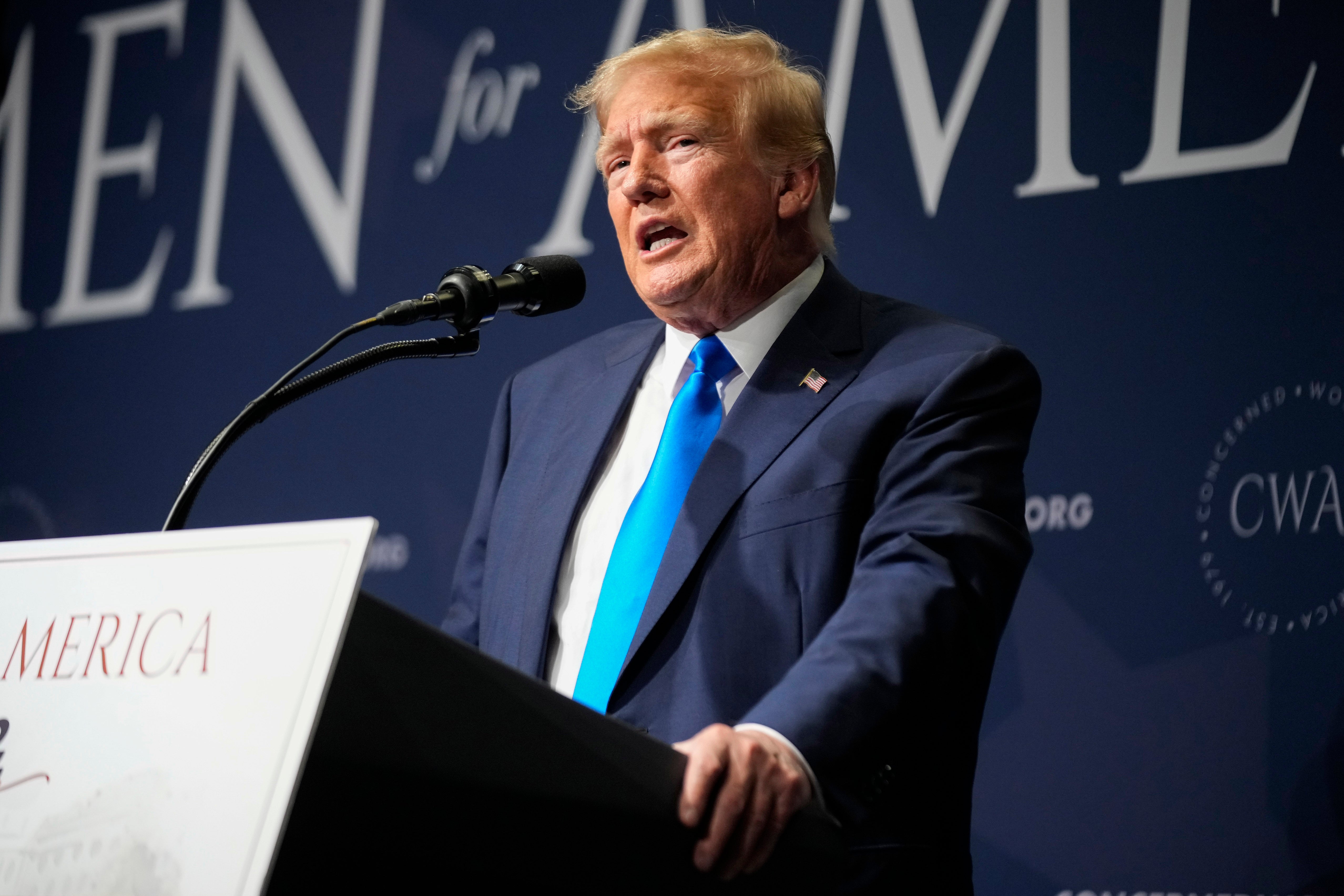Trump argues First Amendment protects him from 'insurrection' cases aimed at keeping him off ballot
Lawyers for former President Donald Trump are arguing that attempts to kick him off the presidential ballot under a rarely used constitutional clause for engaging in “insurrection” are improper attempts to interfere with his freedom of speech

Your support helps us to tell the story
From reproductive rights to climate change to Big Tech, The Independent is on the ground when the story is developing. Whether it's investigating the financials of Elon Musk's pro-Trump PAC or producing our latest documentary, 'The A Word', which shines a light on the American women fighting for reproductive rights, we know how important it is to parse out the facts from the messaging.
At such a critical moment in US history, we need reporters on the ground. Your donation allows us to keep sending journalists to speak to both sides of the story.
The Independent is trusted by Americans across the entire political spectrum. And unlike many other quality news outlets, we choose not to lock Americans out of our reporting and analysis with paywalls. We believe quality journalism should be available to everyone, paid for by those who can afford it.
Your support makes all the difference.Attorneys for former President Donald Trump argue that an attempt to bar him from the 2024 ballot under a rarely used “insurrection” clause of the Constitution should be dismissed as a violation of his freedom of speech.
The lawyers made the argument in a filing posted Monday by a Colorado court in the most significant of a series of challenges to Trump's candidacy under the Civil War-era clause in the 14th Amendment. The challenges rest on Trump's attempts to overturn his 2020 loss to Democrat Joe Biden and his role leading up to the violent Jan. 6, 2021, attack on the U.S. Capitol.
“At no time do Petitioners argue that President Trump did anything other than engage in either speaking or refusing to speak for their argument that he engaged in the purported insurrection,” wrote attorney Geoffrey Blue.
Trump also will argue that the clause doesn't apply to him because “the Fourteenth Amendment applies to one who ‘engaged in insurrection or rebellion,’ not one who only ‘instigated’ any action,” Blue wrote.
The former president's lawyers also said the challenge should be dismissed because he is not yet a candidate under the meaning of Colorado election law, which they contend isn't intended to settle constitutional disputes.
The motion under Colorado's anti-SLAPP law, which shields people from lawsuits that harass them for behavior protected by the First Amendment, will be the first of the 14th Amendment challenges filed in multiple states to be considered in open court. It was filed late Friday and posted by the court Monday.
Denver District Judge Sarah B. Wallace has scheduled a hearing on the motion for Oct. 13. A hearing on the constitutional issues will come on Oct. 30.
Whatever Wallace rules, the issue is likely to reach the U.S. Supreme Court, which has never heard a case on the provision of the 14th Amendment, which was ratified in 1868, three years after the Civil War ended. The clause has only been used a handful of times.
Section Three of the amendment bars from office anyone who once took an oath to uphold the Constitution but then “engaged” in “insurrection or rebellion” against it. Its initial intent was to prevent former Confederate officials from becoming members of Congress and taking over the government.
Trump's contention that he is protected by freedom of speech mirrors his defense in criminal cases charging him for his role in the Jan. 6 attack. There, too, he argues he was simply trying to bring attention to what he believed was an improper election — even though dozens of lawsuits challenging the results had already been rejected.
Prosecutors in those cases and some legal experts have noted that Trump's offenses go beyond speech, to acts such as trying to organize slates of fake electors that Congress could have recognized to make him president again.
The criminal cases have already bled into the 14th Amendment challenge in Colorado. On Friday, Wallace issued an order barring threats and intimidation in the case after the plaintiffs noted that Trump has targeted lawyers and witnesses in the criminal proceedings against him.